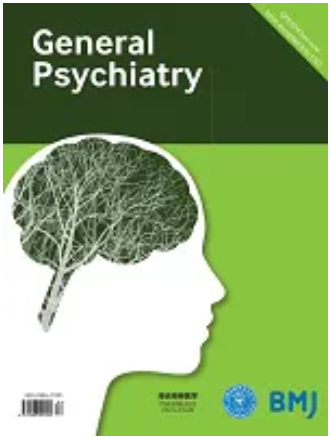Advances in functional MRI research in bipolar disorder: from the perspective of mood states
IF 5.3
3区 医学
Q1 PSYCHIATRY
引用次数: 0
Abstract
Bipolar disorder is characterised by recurrent and alternating episodes of mania/hypomania and depression. Current breakthroughs in functional MRI techniques have uncovered the functional neuroanatomy of bipolar disorder. However, the pathophysiology underlying mood instability, mood switching and the development of extreme mood states is less well understood. This review presents a comprehensive overview of current evidence from functional MRI studies from the perspective of mood states. We first summarise the disrupted brain activation patterns and functional connectivity that have been reported in bipolar disorder, irrespective of the mood state. We next focus on research that solely included patients in a single mood state for a better understanding of the pathophysiology of bipolar disorder and research comparing patients with different mood states to dissect mood state-related effects. Finally, we briefly summarise current theoretical models and conclude this review by proposing potential avenues for future research. A comprehensive understanding of the pathophysiology with consideration of mood states could not only deepen our understanding of how acute mood episodes develop at a neurophysiological level but could also facilitate the identification of biological targets for personalised treatment and the development of new interventions for bipolar disorder.双相情感障碍的功能磁共振成像研究进展:从情绪状态的角度出发
双相情感障碍的特征是反复交替发作的躁狂/躁郁症和抑郁症。目前,功能磁共振成像技术的突破性进展揭示了躁狂症的功能神经解剖学。然而,人们对情绪不稳定、情绪转换和极端情绪状态发展的病理生理学却知之甚少。本综述从情绪状态的角度全面概述了目前功能磁共振成像研究的证据。我们首先总结了躁狂症患者的大脑激活模式和功能连接紊乱,无论其情绪状态如何。接下来,我们将重点关注为更好地了解双相情感障碍的病理生理学而仅纳入单一情绪状态患者的研究,以及比较不同情绪状态患者以剖析情绪状态相关影响的研究。最后,我们简要总结了当前的理论模型,并在本综述的最后提出了未来研究的潜在途径。全面了解病理生理学并考虑情绪状态,不仅能加深我们对急性情绪发作如何在神经生理学水平上发展的理解,还有助于确定个性化治疗的生物学靶点,并开发治疗躁郁症的新干预措施。
本文章由计算机程序翻译,如有差异,请以英文原文为准。
求助全文
约1分钟内获得全文
求助全文
来源期刊

General Psychiatry
医学-精神病学
CiteScore
21.90
自引率
2.50%
发文量
848
期刊介绍:
General Psychiatry (GPSYCH), an open-access journal established in 1959, has been a pioneer in disseminating leading psychiatry research. Addressing a global audience of psychiatrists and mental health professionals, the journal covers diverse topics and publishes original research, systematic reviews, meta-analyses, forums on topical issues, case reports, research methods in psychiatry, and a distinctive section on 'Biostatistics in Psychiatry'. The scope includes original articles on basic research, clinical research, community-based studies, and ecological studies, encompassing a broad spectrum of psychiatric interests.
 求助内容:
求助内容: 应助结果提醒方式:
应助结果提醒方式:


